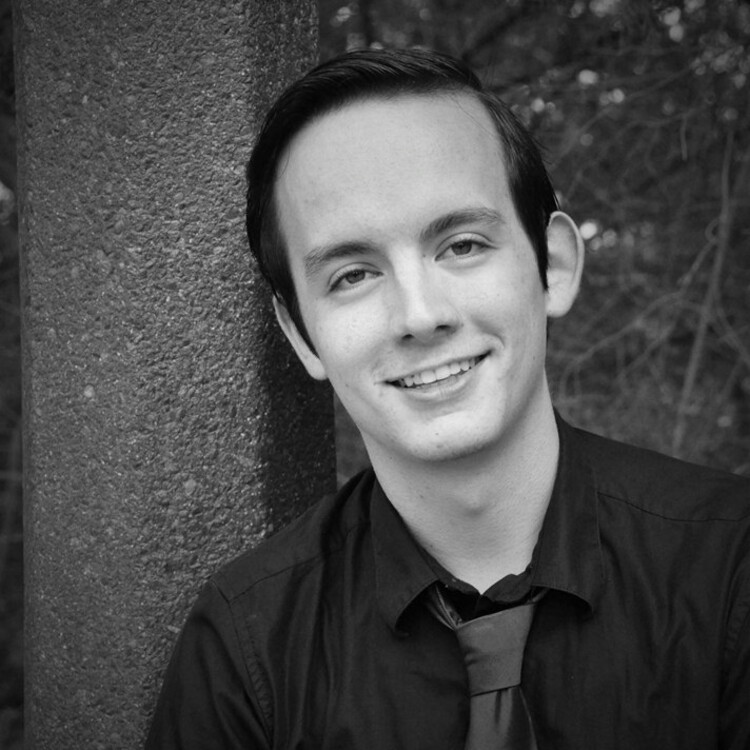Drinking from a Firehose
When it Rains, It Pours—Part 3
Sometimes, the best way to study a theory or philosophy is to implement it and learn from the results. This twelve-part series is the year-long account of one young artist’s efforts to start a new theatre company and put into action what he has learned and is learning from the HowlRound and #newplay community.
When I chose the title for this series, I chose it tongue-in-cheek, thinking myself clever for finding a water-related metaphor that didn’t seem overused. It was a reference to the fact that I thought I was already feeling overwhelmed, attempting to start a new company on my own out of nothing. I didn’t realize it at the time, but I had no idea what being overwhelmed felt like.
Since you’ve heard from me last, both Stage One and Stage Two auditions have happened, and I’m currently finalizing my inaugural ensemble. I have been building an advisory board, adding to my staff roster, and putting out a call for plays (a passion that HowlRound and #newplay helped instill in me) that has resulted in over two hundred submissions from around the world within three weeks.
So this month, I want to talk about serendipity. I’ve been trying to unpack the factors involved in my current (incredibly wonderful) overwhelmed state. What “happy accident” occurred to yield these results? How can I replicate them in the future? Should I even try? When is my good luck going to run out? When will everyone realize that I have no clue what I’m doing?
That last question is the one I spend the most time fighting, because it’s not a fair question. I do actually know what I’m doing most of the time. I have good reasons for the choices I make, and if being an actor and director has taught me anything, it’s to make clear choices. But even in my dreams I didn’t imagine my decisions would turn out as well as they have.
It started with my audition process. Very early on, I knew that I couldn’t rely on the traditional audition to give me the information that I needed. Time and again I have seen people with great auditions flop in the rehearsal room and people with awful auditions come alive there, so I set out to craft an audition process that I thought would give me the information I needed. Since I was trying to form an ensemble, I knew that I had to try and discern who these people were as artists instead of simply testing their skill level.
So I assigned a four-monologue audition, asking people to prepare one role that they liked and could play now, one they liked but wouldn’t be cast in right now, and one role they liked but would never be cast in. The fourth monologue was a “movement” monologue.
For the most part, this accomplished what I had hoped it would. People picked material they liked, rather than simply material they thought I wanted to see, and I got to see the range of each performer pretty clearly. I scheduled times far enough apart that we had time to “play” and I got to see how they responded to direction.
And if I’m being honest, I did hope that this would discourage the casual auditionee from participating in the process. I wanted to create a higher threshold for preparation and dedication, and my experiment was largely successful. Of the seven people who did audition, I called back five of them and am now doing interviews with all five. Each of them is talented and hard-working, and while some are more inexperienced than others, all bring something unique to the table.
So I ask myself, what factors of the audition process helped garner that result? If I did the same thing each year hereafter, would it yield similar results? Was it just dumb luck, or was my audition structure actually a factor?
I face the same conundrum when I look at the list of two hundred play submissions that we have accepted in the past three weeks. I initially put out a call for plays on Twitter back in June, garnering a few interested submissions, but that was it. Mid-September I posted an official call over the #2amt and #newplay hashtags on Twitter and via email to Emerging Playwrights; this garnered maybe one or two additional submissions. And then Emerging Playwrights posted our call on September 18th.
I started getting between ten and twenty plays a day, from all over the country and then all over the world, including Serbia, Ireland, and Australia. And I’m sure that there are plenty of companies across the country who produce new work and receive a similar result, but I was not expecting it. In my mind, we were a small ensemble company in a small city with no artistic reputation and, at that point, still no ensemble. I was hoping for fifty submissions, and that was if we were extremely lucky… I wasn’t expecting to have to cap it at two hundred and then continue to receive submissions that I had to turn down.
What factors of the audition process helped garner that result? If I did the same thing each year hereafter, would it yield similar results? Was it just dumb luck, or was my audition structure actually a factor?
I started picking apart cover letters and emails from these playwrights, trying to figure out what had happened. Many of them referenced seeing our call somewhere other than Emerging Playwrights, which meant that it had been organically cross-posted and shared without any effort on my part. Some of them referenced the fact that they were intrigued by the part of our call saying we had no plans to produce work in traditional theater spaces this year. Some liked the name of our company, some found our website appealing. And quite a few referenced the video I filmed to introduce people in my community to This Is Water Theatre.
While all of these things were specific choices (and at least one of them, the video, was a poorly executed choice), I never expected that they would lead to the result that they have. And while I’m going to try and pick apart what role each of these choices played in the great outcome that has me so overwhelmed, I’m also just thankful for the serendipity that has yielded a great ensemble and a firehose-sized stack of plays to start reading through.
As always, please comment if you have any thoughts to share. See you next month!














Comments
The article is just the start of the conversation—we want to know what you think about this subject, too! HowlRound is a space for knowledge-sharing, and we welcome spirited, thoughtful, and on-topic dialogue. Find our full comments policy here
Hi, Andy.
I'm the author of one of those 200 scripts in which you are currently drowning. It sounds like you might be interested in how I came to send a play to you, so here goes: I'm trying to recall where I first saw your request for submissions. I regularly scan the #newplay tag for opps and probably saw it on Emerging Playwrights as well. Several notes by my computer say "submit to this is water??" I checked out your website and liked it, and I thought one of my plays might be a good fit for your mission and casting requirements. Then I asked my husband, who is from Texas, whether College Station was a diverse community, because the play addresses questions of race and privilege. Then I made another note to submit "Gap" ... and then, finally, I saw your twitter post that the scripts were pouring in and you would be capping your submissions, so I immediately emailed you my script and only then retweeted your post to other playwrights, so they wouldn't get theirs in before me (I'm not *that* nice).
Happy Reading,
Carol
Drowning is such a heavy word! ;-)
Thank you so much for sharing your perspective on how you came across the call, that's lovely to hear!
Then let us say swimming--like a hyperconscious but happy fish in a rather large pond.